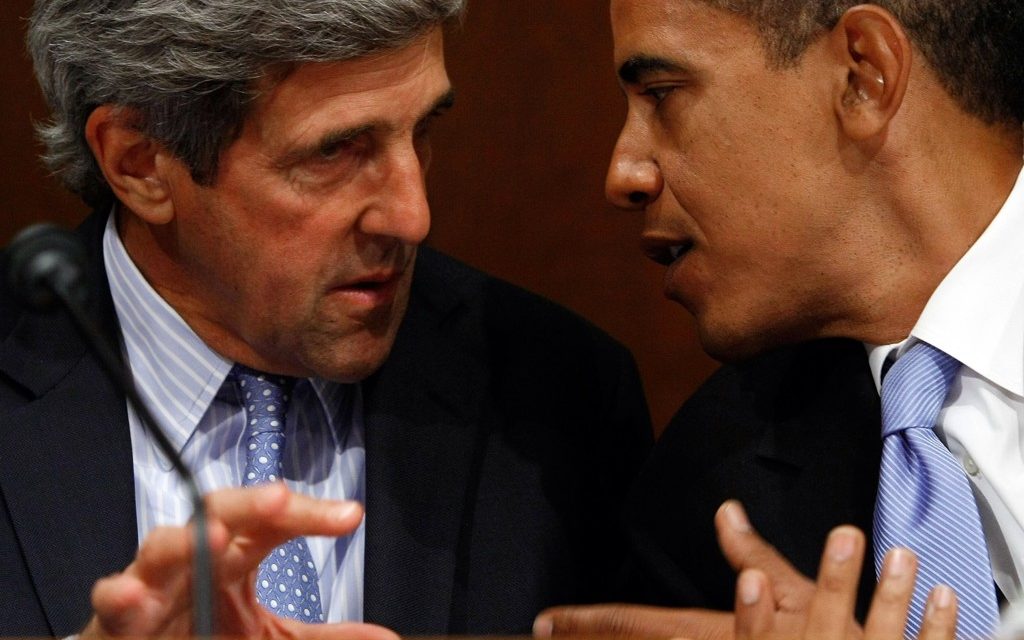LATEST: 4 Killed in Clashes in Tripoli in Northern Lebanon
THURSDAY FEATURES
Audio Analysis: What is the Future of “Hard News”?
Military Round-Up: Car Bomb Explodes At Checkopint In Daraa Province
Jump to Latest Update
SUMMARY: Writing for Foreign Policy magazine’s The Cable blog, Yochi Dreazen reveals — with the help of a leak from a high-ranking US official — a serious split within the State Department over whether to proceed with plans for the Geneva II “peace” conference:
Secretary of State John Kerry is at odds with several senior State Department officials over whether to press ahead with plans for a high-profile peace conference next month that is designed to put negotiators from Syria’s main opposition groups and the government of Syrian President Bashar al-Assad into the same room for the first time.
Kerry is strongly committed to holding the talks and has spent the past several days prodding key Syrian opposition figures to take part in the negotiations. But according to several senior State Department officials, some of Kerry’s top advisors believe that the conference should be called off because the most important of those opposition leaders are unlikely to come.
“The only person who wants the Geneva conference to happen is the secretary,” a senior U.S. official told The Cable. “Who’s going to show up? Will they actually represent anyone? If not, why take the risk?”
The division reveals the cul-de-sac into which US foreign policy has run, following the decision to ally with Russia on the handover of the Assad regime’s chemical weapons and on pressurizing all sides to attend a peace conference.
Leading opposition groups based outside Syria have said they will not attend the Geneva talks in current political and military conditions, and without a promise from President Assad to step down from power. While Kerry has publicly declared that Assad cannot retain office as part of a settlement, he has not committed the US to insisting upon this as a pre-condition before Geneva II is convened.
The revelation of the split follows Wednesday’s exposure of long-standing divisions within the Obama Administration over intervention, in light of the President’;s decision last month not to take action over the Assad regime’s use of chemical weapons.
See Syria Analysis: Fight Within Obama Administration — Officials Crticize Him as “Uncertain”
A “senior State Department official” said the US continued to believe there was a chance of persuading the Syrian National Coalition to to participate in the Geneva talks: “Right now the participation of the [Coalition] in Geneva is not assured, but it is still possible.”
Robert Ford, the US Ambassador to Syria, is in Istanbul this week in a last attempt to convince opposition leaders to change their minds over participation.
Latest Updates, Most Recent First
4 Killed in Clashes in Tripoli in Northern Lebanon
Four people have been killed and 39 wounded in Tripoli in northern Lebanon amid clashes between factions supporting and opposing President Assad.
Fighter broke out on Tuesday between fighters in the Sunni district of Bab Tabbaneh and the nearby Alawite enclave of Jebel Mohsen. The violence subsided into sporadic gunfire on Thursday after the army deployed across Tripoli.
Two of the dead came from Bab Tabbaneh and two from Jebel Mohsen. All were killed by sniper fire.
Tripoli has seen periodic clashes between the factions over the last year amid the intensifying Syrian crisis. In August, two car bombs at Sunni mosques killed 42 people and wounded hundreds.
Saudi King Abdullah “Convinced US Is Unreliable”
The Washington Post’s David Ignatius writes on behalf of Saudi Arabia on Thursday, “The US-Saudi Crackup Reaches a Dramatic Tipping Point“.
Amid the spin, these paragraphs have value:
Saudi King Abdullah privately voiced his frustration with U.S. policy in a lunch in Riyadh Monday with King Abdullah of Jordan and Crown Prince Mohammed bin Zayed of the U.A.E., according to a knowledgeable Arab official. The Saudi monarch “is convinced the U.S. is unreliable,” this official said.
“I don’t see a genuine desire to fix it” on either side, he added.

